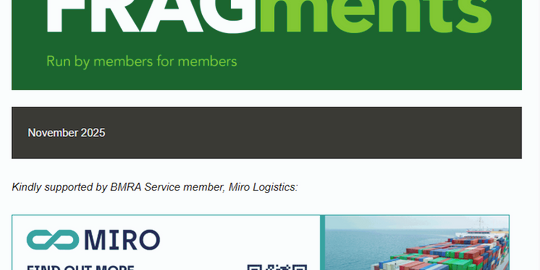Analysis from Plimsoll

As COVID-19 restrictions continue to ease, now is a good time for firms in the scrap metal industry to begin to assess the financial impact of the past year, as well as to look ahead to what the next few months may have in store. Financial intelligence providers Plimsoll have produced research on the UK’s leading scrap metal merchants; their latest findings can shed light on the financial health of both the industry as a whole and the firms operating within it.
A key component of their analysis is the Plimsoll chart. Companies with a high or rising chart are generally performing well, whereas a low or falling Plimsoll chart is likely to indicate hidden problems. Looking at scrap metal merchants, a significant 45% currently have a low and falling chart - as expected, a slightly higher percentage than this time last year. 134 firms find themselves operating in a weakened financial position, but most notably 117 are selling at a loss for the second year running. While some losses as a result of events of the past year are to be anticipated, companies who went into the pandemic already in difficulty could struggle to recuperate at the same rate as their more robust competitors.
While almost no sector escaped the difficulties of the pandemic, metal recycling specialists faced unique challenges. Heavily reliant on shifts in adjacent markets, as well as being hit by national lockdowns, many scrap metal plants both in the UK and globally were forced to close for a number of months. In an industry with comparably little opportunity to shift staff to remote working, many firms relied on the government’s furlough scheme to avoid as many job losses as possible.
But some layoffs were unfortunately inevitable. According to Plimsoll’s latest estimates at least 20% of companies are publishing reduced staff numbers compared to their previous year, a figure which looks likely to increase as we move through 2021. However, it is worth noting that companies are holding onto more stock and cash in the most recent data (with the latter representing just over 11% of sales). This more cautious approach reflects more widespread uncertainty following a combination of falling prices and global supply chain issues. With companies reluctant to make investments it could be a while before the market opens up enough to return to normal levels.
However, despite both the wider economy and the recycling sector taking a hit due to restrictions, as things begin to reopen it is expected that the industry will eventually return to pre-pandemic levels. According to the latest data, Plimsoll have allocated a rating of “strong” to around 10% of UK scrap metal merchants, who have retained good profitability and relatively low levels of debt.
As a key link in the metallurgy and recycling sectors, the financial health of the scrap metal market is no doubt hugely important to the recovery of the UK economy as a whole. Throughout the rest of 2021 and beyond, business leaders and decision makers within the industry will need to pay close attention to industry trends as well as to their competitors to maximise recovery and continue to succeed longer term.
As David Pattison, specialist in data and insights at Plimsoll, explains: “While shocks like the COVID-19 pandemic cannot always be predicted, having the right tools on hand to quickly understand and effectively react to change can make all the difference.”
To find out more about Plimsoll’s Scrap Metal Merchants Industry Analysis, visit plimsoll.co.uk.
About Plimsoll: Since 1987, Plimsoll Publishing Ltd have provided simple, visual analyses to quickly give early warning signs of danger and success within a company. The Plimsoll Model is based on the most responsive financial ratios and instantly reveals key elements of a company’s commercial health.
Plimsoll pride themselves on their ability to provide continuously updated analysis on over 1600 different industries across the globe.


